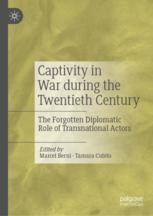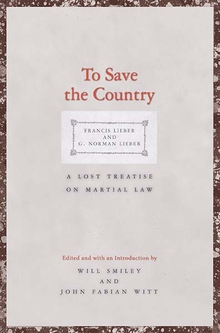I . Introduction
1. The Conversation on Sunday Afternoon
2. Utopia
3. Facts
4.
Casus Belli in Practice
5. Volumes One to Three
6. Volume Four
II. The Glorious Revolution
1. Introduction
2. Republics
3. The First War between the Dutch and English Republics
4. Allies with France, War with Spain
5. The Restoration
6. Alliance with Portugal and Further War with Spain
7. A Second War with the Dutch, and then the French
8. Alliance with France, Further War against the Dutch, and Another Peace
9. War and Peace with English and the Indigenous Communities in the Colonies
10. The Causes of the Revolution in England
11. The Invasion of England
12. The Glorious Revolution
13. John Locke
14. Constitutional Monarchy Entrenched
15. Liberty
16. Conclusion
III. The Wars of Louis XIV 1. Introduction
2. The Ongoing Conflict with Spain
3. The War of Spanish Inheritance
4. The War of France and England against the Dutch Republic
5. The Reunion Wars
6. The Nine Years War
7. The War of Spanish Succession
8. Conclusion
IV. The Interregnum
1. Introduction
2. Succession and Dynastic Considerations
3. The War of the Quadruple Alliance
4. The 1720s
5. Skirting a Major Conflict in the 1730s
6. Conclusion
V. The War of Austrian Succession
1. Introduction
2. The Prize
3. Frederick II
4. The Opportunities for Others of the Habsburg Inheritance
5. Splintering the Opposition and Building New Alliances
6. The Slide Towards World War
7. Coming to the Boil
8. Full Boil
9. Bonnie Prince Charlie
10. Expansion and Exhaustion
11. The
Treaty of Aix-la-Chapelle 12. Conclusion
VI. The Seven Years War
1. Introduction
2. The New Plan
3. Trouble in the Colonies
4. Austria Backs Away from its Alliance with Britain
5. Britain Makes a Deal with Russia
6. The
Treaty of Westminster Trumps that with Russia
7. Misreading the Opposition
8. New Friends and New Neutrals: The
First Treaties of Versailles 9. The Deepening Conflict
10. The Invasion of Saxony
11. The Widening Conflict in India and North America
12. The Expansion of the Anti-Prussian Alliance
13. Extreme Pressure Applied on Prussia
14. The Push Back
15. A Good Year for Britain
16. The Pressure on Prussia and Victories for Britain
17. The Entry of Spain
18. The Exit of Russia
19. The Last Actions
20. The
Peace of Paris 21. The
Peace of Hubertusburg 22. Conclusion
VII. The War of American Independence
1. Introduction
2. Before the Revolution
3. After the Seven Years War
4. Land and Native Americans
5. Sugar and Stamps
6. A Revised Approach
7. Tea
8. The Intolerable Acts
9. 1774: The Reaction
10. A Shot Heard Across the World
11. The Justification and Escalation
12. The First Help and Assistance
13.
Common Sense 14. The
Declaration of Independence 15. Military Survival and Political Cohesion
16. The French Enter the War
17. As the War Grinds on in North America, it Expands into Other Parts of the World
18. Spain Enters the Fray
19. Tupac's Rebellion in Peru
20. A Global War
21. The League of Armed Neutrality
22. The Last Years of the Conflict
23. Peace
24. The Native American Question
25. What the Americans Fought for
26. The United States and the Wider World in the 1790s
27. The French Revolution and the Turn Towards Isolationism
28. Conclusion
VIII. The French Revolution
1. Introduction
2. Kings
3. Philosophers
4. The Fuse to Revolution in France
5. The Foreign Context
6. War
7. The First Coalition against the Republic of France
8. Internal Enemies
9. The War Changes, Turns and Expands
10. Britain Fights Alone
11. The Second Coalition
12. Napoleon
13. Conclusion
IX. Slavery 1. Introduction
2. Numbers and Impact
3. Supply
4. Traders
5. Indentured Labour
6. The Laws of Slavery
7. Slave Revolts in the Second Half of the Seventeenth Century
8. Dissent against Slavery
9. Slave Revolts up to 1765
10. The American Revolution
11. The Abolitionist Movement in Britain
12. The French Revolution
13. Saint Dominique/Haiti
14. The Revolt
15. Conclusion
X. The Wars of North and Eastern Europe
1. Introduction
2. The First Northern War
3. The Second Northern War
4. Between the Wars
5. The War of Polish Succession
6. The Austrian War of Succession
7. The Seven Years War
8. Catherine the Great
9. The First Partition of Poland
10. Rebellions against Serfdom
11. The Almost War of Bavarian Succession
12. The Second Partition of Poland
13. The End of the Commonwealth of Poland-Lithuania
14. Paul I
15. Conclusion
XI. Religion
1. Introduction
2. Enlightenment
3. Religion as a Pretext for War
4. The Movement Towards Tolerance
5. Religion in the Revolutionary Wars
6. Conclusion
XII. The Muslim Territories
1. Introduction
2. The Ottoman Empire
3. The Siege of Vienna
4. North Africa
5. New Ottoman Conflict with Russia
6. New Ottoman Conflict with the Venetians and the Habsburgs
7. The End of the Safavid Dynasty
8. The Rise of Nader Shah
9. The Austro-Russian and Ottoman War of 1735 to 1739
10. Aurangzeb and the Mughal Empire
11. Nader Shah at Full Strength
12. The Rise of the British in India
13. Three Decades of Russian-Ottoman Conflict
14. War and Peace in Eighteenth-century North Africa
15. The Challenge at the Epicentre of the Ottoman Empire
16. Conclusion
XIII. China and its Neighbours
1. Introduction
2. The Shunzhi Emperor
3. The Kangxi Emperor
4. The Yongzheng Emperor
5. The Qianlong Emperor
6. Europeans
7. Conclusion
XIV. Grand Plans for Peace
1. Introduction
2. Hobbes
3. Penn
4. Leibniz
5. The Abbé Charles de Saint-Pierre
6. Vattel and Wolff
7. Voltaire
8. Rousseau
9. Bentham
10. Kant
11. Conclusion
XV. Conclusion
1. Absolute Rulers
2. Religion
3. Ideologies of the Enlightenment
4. The Muslim Territories
5. China and Asia




